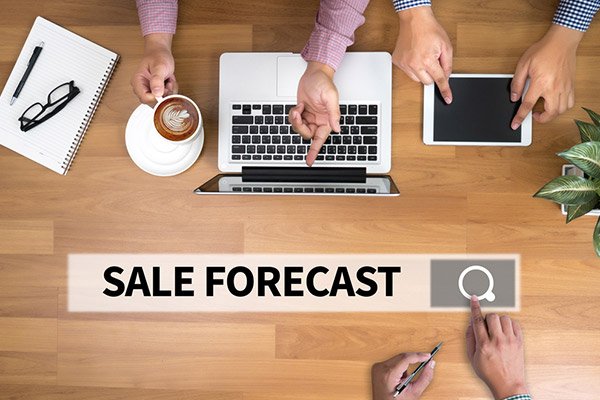
Whether your company is old or new, a strong business needs a well-crafted financial plan. A financial plan is a map of how you will spend your money to achieve your goals. From operational expenses to purchasing assets and allocating marketing budgets, the financial plan covers all.
A good financial plan also sheds light on your future profit and loss statements. If we look into the current economic situation, we can observe a sluggish economy. Coronavirus has shuttered down business activities globally. Although businesses are trying to rally through telework and rapid digitization, every industry is suffering.
In times of economic crisis, such as the one we are facing right now, the first things businesses do is to take a good look at their finances. Businesses are now in survival mode, and therefore their finances should reflect this strategy. It’s time to cut back on growth and expansion plans, and reallocate your marketing budgets.
Not sure where to start? Take a look at the steps suggested below to get started:
Financial Business Plan
When the economy is in a crisis, companies think twice before investing. Some concerning factors for every investor include projected cash flow, balance sheet, and income statement. All three of them are fundamental parts of your financial plan. However, you need to keep your focus on the tools to make numerical projections.
These tools are:
1. Forecasting Sales

As per your plan and idea, you must have some idea of your future sales. Yes, it's hard to predict anything in this unprecedented time. However, you can treat your business as a seasonal business and consider Coronavirus as an off-season. Just like seasonal businesses do some off-stage planning in off-seasons, you can also do so to reap the benefits when the tide turns around.
For instance, the travel industry has not closed its business despite travel restrictions worldwide. All aviation companies are biding their time with off-season strategies such as shipping & cargo and specialty flights, etc., until travelling by air is allowed again.
On the flip side, if it is an e-commerce business, sales are likely to experience a hike. If you are planning to provide unmatched solutions in this crisis like sanitized goods, timely deliveries, bulk stock, etc. you can forecast a high number of sales.
The whole world is bending the knees to procure things through digital means. If you can do so, you can bowl over the competitors with high sales.
2. Budgeting Expense

You will make a comprehensive budget for your business expenses. Make things easier by dividing them into three main categories:
• Regular expenses
These are your routine and everyday expenses. Operational expenses, utility charges, monthly conferences, and payroll expenses come under the category of regular expenses. Now, due to the pandemic, businesses have either canceled their conferences or conducting online, remote working is practiced so utility expense is reduced and manual operations are minimized, thus reducing the overall regular expenditure.
• Future expenses
Future expenses refer to any charges that might incur in the future. Like high taxes, high maintenance costs, unexpected damage, or a sudden disaster. Since the future is still unclear and the contagion is infecting millions of people every day, you should allocate a high budget to your future expenses.
• Associated expenses
It is the cost incurred in your business growth. There are two sides to this expense during the pandemic: on the one hand, it is foolish to consider opening a new outlet or expanding into a new geographic area at this time.
But on the other hand, you may need to invest in digital marketing, home delivery infrastructure, and telework infrastructure, given the new situation. In the U.K., a professional cleaning service, carpet cleaning Dartford, had to invest in more vans because its employees could not share vehicles because of the pandemic.
Similarly, many companies are purchasing laptops, secure video conferencing platforms, and even secure internet connections for their employees as they work from home.
3. Analyzing Liabilities and Assets
During a pandemic, it is essential to calculate your liquid-able assets. Liquid assets are those that can be converted into cash at short notice. They include tangible assets such as accounts receivable, government bonds, stocks, infrastructure, vehicles, and inventory, etc.
Secure payments from all account receivables so that you have money to run the business even if sales decline. Also, look closely at your business liabilities and figure out of you can pay off loans and future payments, etc. A comprehensive look at your financial position from your balance sheet, where both assets and liabilities are used.
4. Projecting Cash Flow

Projecting the cash flow helps in determining the cash needed at the end of each month. It helps in planning for future investments and budgeting. If you are operating online and have verified payment systems, you can expect a good cash flow even during the corona pandemic.
People are interested in purchasing basic necessities right now. Luxurious goods are not in demand. Analyze the demand for your products/services and determine your cash flow. If it’s not enough, you can make plans to take care of it beforehand. For example, SME government loans, grants, and tax rebates, etc.
5. Analyzing the Break-Even Point
We all know that the break-even point is no profit and no loss situation. This is the point where the business is not making any profit, but its selling just enough that it is not in loss either. This is also a point of relief for every business owner. With the recent economic drop-down, many businesses are operating at their break-even.
You get a good idea of setting your price with the B.E point. Calculate how many units are required to sell for covering your cost. Right now, you can survive if your business keeps operating like this for the next couple of months.
So try to maintain enough sales to reach the break-even point. Go digital, offer sales and discounts, and reduce prices if you have to.
6. Planning Operations
You will consider your operational needs at this point. You are starting a business at a time when many others are tumbled. So, what unique operational needs do you have to cater to the confined people at home?
Similarly, what roles are needed to achieve your objectives, and what output is expected from each employee?
Bonus Tip
SCORE and SBA (Small Business Association) are providing comprehensive guidance on financial plans. If you are new to financial plans, take guidance from these organizations.